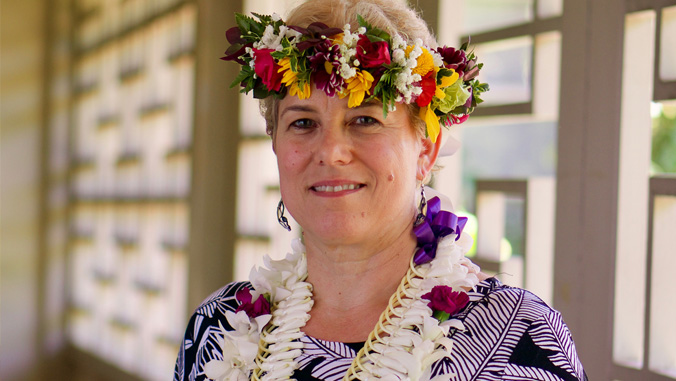
A training program to promote the health and food sustainability in remote island communities has received a significant award from the U.S. Department of Agriculture, National Institute of Food and Agriculture. Lori Andersen, assistant specialist in the University of Hawaiʻi at Mānoa College of Education Curriculum Research & Development Group (CRDG), was awarded $800K, and the two-year grant will support FEAST (Food Environment Assessment Study): Food Experiences for Agricultural Sciences Training.
Under the direction of Andersen and in collaboration with the Center for Getting Things Started (C4GTS), FEAST will work with 12 master’s teachers and 15 community leaders in the Hawaiʻi and Guam farm-to-school networks to create, distribute and implement low-technology distance learning resources for agricultural science education.
“Remote island communities need agricultural science education to address important regional issues of food security and sustainability, but they lack accessible distance learning resources for students and teachers,” Andersen stated. “The ultimate goal of FEAST is to increase student access to and participation in agricultural science education by providing teachers with high-quality, low-technology distance learning resources.”
CRDG and C4GTS will provide a professional development course for the master’s teachers to develop skills in distance learning design as well as opportunities to work with a team to fine-tune these new skills and develop new resources. Workshops and materials, such as distance learning resource kits, will be distributed to 500 teachers across the region and reach more than 20,000 students.
Benefits of the FEAST program may include families eating healthier, growing produce locally, being more consistent in the use of COVID-19-related safety protocols during meal preparation and in the garden, and learning about the wide range of agriculturally related careers and entrepreneurial opportunities.
Andersen added, “Society benefits because remote island communities will have increased awareness of food security and sustainability issues, learn how to grow their own food, and make the connections between food and health.”

